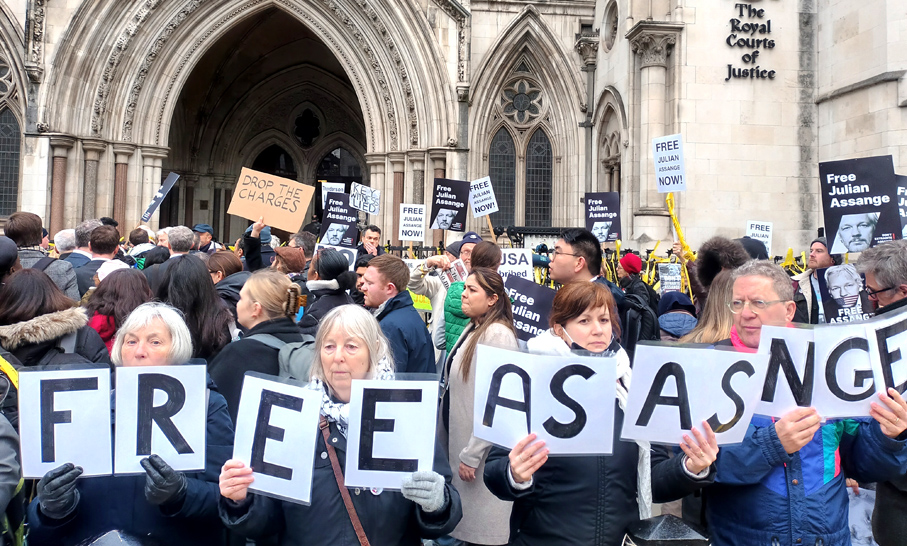ON the second and pivotal day of Julian Assange’s appeal hearing, the unwavering spirit of Assange supporters was palpable outside London’s High Court, despite the rain.
The air was alive with the determined voices of hundreds of Assange’s supporters, their chants — ‘There is only one decision, no extradition’.
Inside the courtroom, the legal representatives for the US government presented their counter-arguments, asserting that Assange’s actions far exceeded the bounds of responsible journalism. Lawyer Clair Dobbin articulated the US stance, stating that Assange had actively encouraged illegal activities such as hacking and theft to procure the documents in question.
Outside the court, Stella Assange, Julian’s wife and a human rights lawyer, addressed the assembly of supporters with fervent appeals for justice. She denounced the US case as ‘pathetic’ and founded on ‘lies’, framing the legal ordeal as a broader struggle against the criminalisation of journalism. ‘What they’re trying to argue is that state secrets trump revealing state crimes,’ she remarked as she addressed the gathering outside the court.
Stella’s impassioned speech culminated in a call to action, urging supporters to march to Downing Street in a collective demonstration of dissent against the potential extradition.
The fate of Julian Assange hangs in balance, with the potential for an appeal to the European Court of Human Rights looming as a last resort.
Assange’s plight has ignited a global debate on the rights of journalists and whistleblowers. The extensive leaks facilitated by WikiLeaks, from revealing the casualties of war to exposing diplomatic duplicities, have been instrumental in holding power to account.
Despite facing an array of charges, including 17 under the Espionage Act, Assange’s actions have been defended by free speech advocates and human rights organisations as being within the remit of journalistic inquiry, aimed at exposing truths critical for public discourse.
